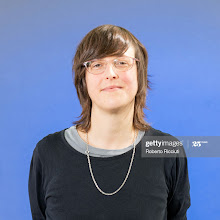What is curious about the neoliberal project kick-started in the year of my birth, is that, from the politics of the preceding decade, it appeared history could have taken a very different course. 1972 marked the publication of The Limits to Growth – a study commissioned by the humanitarian think-tank the Club of Rome to estimate the planet’s reserves of natural resources, “including topsoil, fresh water, minerals, forests and oceans” – questioning for the first time what might be the consequences of “another 100 years of exponential growth” (M. Fowkes & R. Fowkes 2009, p.670). The findings of the study were so significant that they are cited by Maja and Reuben Fowkes as a revelation for the future of humanity on a par with Copernicus’s discovery of Heliocentrism: putting our lives on planet earth sharply into perspective. Essentially the report gave us all the information we needed to know: that the way of life modernity had accustomed us to, was not sustainable. The whole system on which our modern liberal democracies were structured was supported by a myth of continual and infinite progress (Kingsnorth & Hine 2009, p.3) and a universal belief that the future will always be better than the past – that it is always within our capable hands to control our destinies.
Rather than take heed of this advice and look for alternative ways of structuring our societies, what actually began towards the end of the seventies, continuing right up to the present day, was the opposite: a complete and utter acceleration of our production and consumption. Post- The Limits to Growth our lives were allowed to continue in a fashion now no longer based on scientific facts, but on fantasy:
“What this… illustrates is the fantasy structure on which capitalist realism depends: a presupposition that resources are infinite, that the earth itself is merely a husk which capital can at a certain point slough off like a used skin, and that any problem can be solved by the market... The relationship between capitalism and eco-disaster is neither coincidental nor accidental: capital’s ‘need of a constantly expanding market’, its ‘growth fetish’, mean that capitalism is by its very nature opposed to any notion of sustainability.” (Fisher 2009, pp.18-9)
We were allowed to continue because we repressed this truth. Our ‘denial’ was constituted by what Freud described as our inability to hear the things which did not fit easily with the way we envisaged ourselves in the world (Kingsnorth & Hine 2009, p.9). We simply blocked out any hint of a hitch or obstacle to our career trajectories and carried-on regardless. Neoliberalism achieved this ‘state of mind’ purposefully – by pacifying us with the things we thought we wanted, that would make us happy, whilst removing the possibility for resistance. The “drive towards atomistic individualisation” (Fisher 2009, p.37) captured in Margaret Thatcher’s dictum “There is no such thing as Society. There are individual men and women” (M. Thatcher n.d.), plunged us further into our internal solipsistic worlds; from where it became almost impossible to fully empathise with others, to acknowledge the wider consequences of our actions, to see beyond the fantasy – to believe that ‘an alternative’ might be possible. We lost our political ‘agency’ as our liberal democracies became governments-as-administration (Žižek 2009b); appealing to our burgeoning “individual ideals” (Strawson 2008) – to “short-termism” (Brown 2009) – rather than the bigger picture and a realistic long-term plan.
In his recent book First as Tragedy, Then as Farce, Slavoj Žižek describes the strategies the neoliberal policy makers employed to continue to maintain this state of denial well into the twenty-first century, explaining how the negative side effects of the bursting of the dotcom bubble in 2000 had been countered by a push on cheap loans to stimulate the housing market. This had simply allowed the US to “continue dreaming” (Žižek 2009a, p.20) for that little bit longer; essentially just prolonging the global crisis until a later date: until now.
How to Reconcile the Careerist Mentality with Our Impending Doom
By Ellie Harrison
May 2010
Contents
- Preface
- Global Warming Projection
- Setting the Scene
- The Careerist Mentality
- Our Impending Doom
- A Rude Awakening
- Now or Never
- Atomised Art World
- Free Our Minds
- Outside the Bubble
- Plan of Action
- New Moral Code
- Clandestine Insurgence
- Alternative Knowledge
- Practical Solutions
- Multi-Pronged Approach
- A Reconciled Practice
- Our Fully Functional Role
- References
